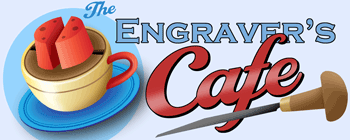Damien Connolly
Member
Fitted inside the lid of the Colt SAA that I engraved with Winston Churchill. Starting with 1/8" mild steel plate, designed, drawn, machined for depth, chiselled, filed and ground before 24ct gold inlay and a big cleanup job. Sawn out with No2 jewelers blades, niter blued, and inlayed to the Turkish walnut oval. Secured from the back with 20x1.2mm screws.
Attachments
-
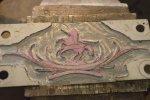 _DSC1244-1150x768.JPG122.5 KB · Views: 174
_DSC1244-1150x768.JPG122.5 KB · Views: 174 -
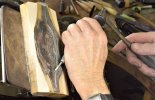 _DSC1250 (2)-1189x768.JPG119.7 KB · Views: 168
_DSC1250 (2)-1189x768.JPG119.7 KB · Views: 168 -
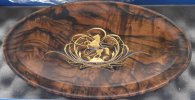 _DSC1256 (2)-1494x768.JPG113.7 KB · Views: 172
_DSC1256 (2)-1494x768.JPG113.7 KB · Views: 172 -
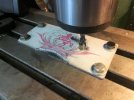 IMG_20190912_182637 (2)-1024x768.jpg109.5 KB · Views: 166
IMG_20190912_182637 (2)-1024x768.jpg109.5 KB · Views: 166 -
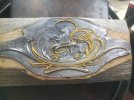 IMG_20191109_141930-1024x768.jpg138.3 KB · Views: 164
IMG_20191109_141930-1024x768.jpg138.3 KB · Views: 164 -
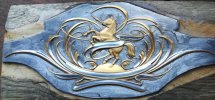 IMG_20191218_145432-1649x768.jpg133.3 KB · Views: 171
IMG_20191218_145432-1649x768.jpg133.3 KB · Views: 171 -
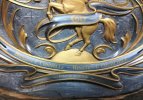 IMG_20200108_170135 (2)-1024x716.jpg146.3 KB · Views: 176
IMG_20200108_170135 (2)-1024x716.jpg146.3 KB · Views: 176 -
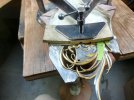 IMG_20200110_180001 (2).jpg113.2 KB · Views: 186
IMG_20200110_180001 (2).jpg113.2 KB · Views: 186 -
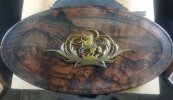 IMG_20200112_200620 (3)-1323x768.jpg87.7 KB · Views: 181
IMG_20200112_200620 (3)-1323x768.jpg87.7 KB · Views: 181 -
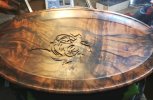 IMG_20200114_184728 (2)-1173x768.jpg123.8 KB · Views: 187
IMG_20200114_184728 (2)-1173x768.jpg123.8 KB · Views: 187
